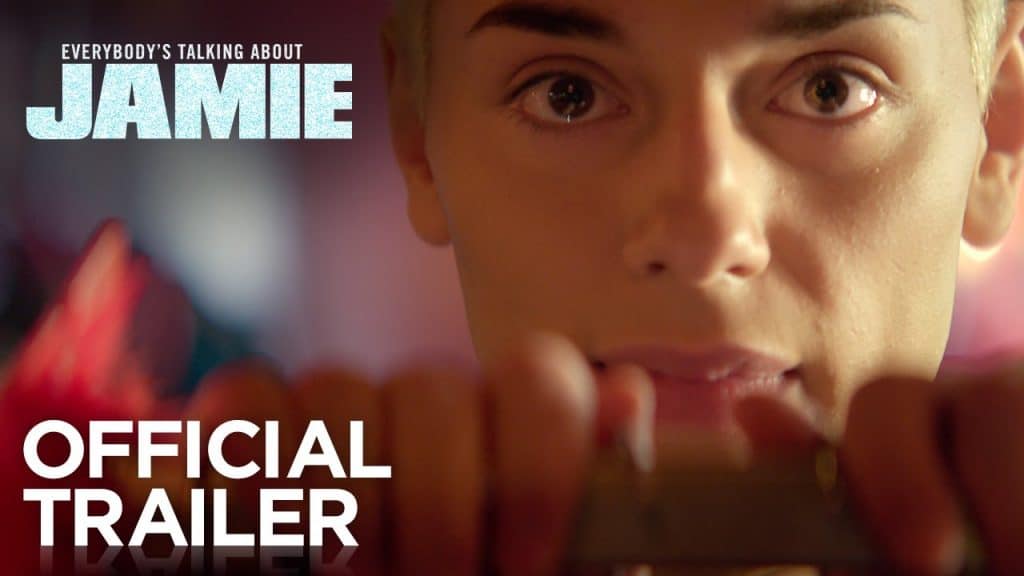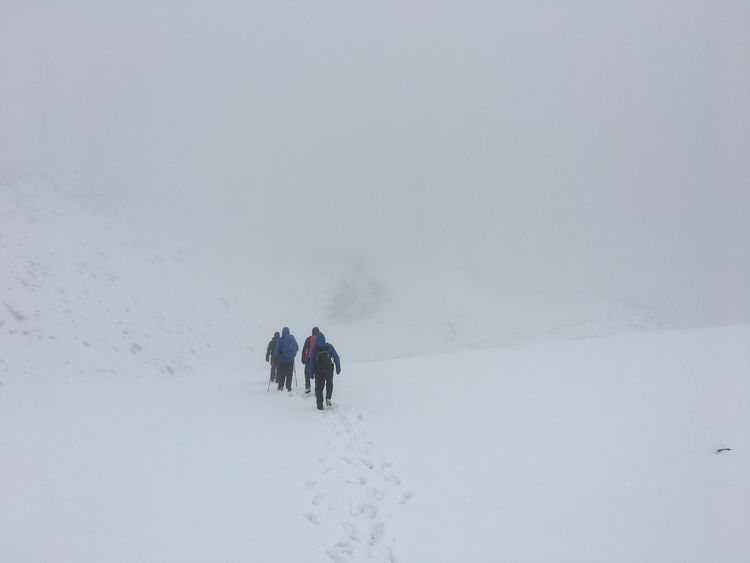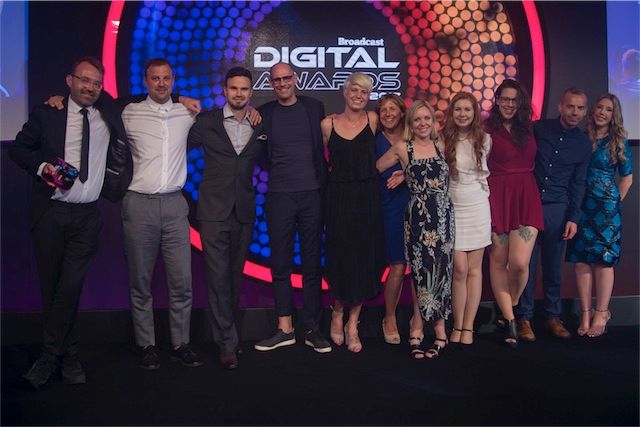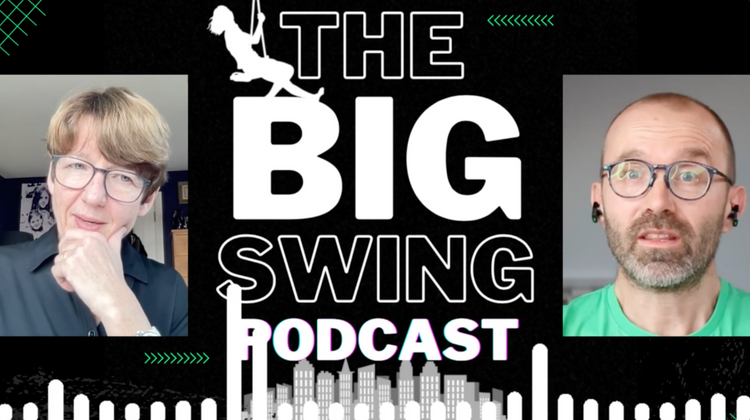Why documentary will revitalise the production business

> > To receive this email every Friday, subscribe to Creatorville for free < <
Everything good starts with an incredible true story.
And in my experience, it is journalists who uncover those hidden gems.
Tasked with keeping the wider world informed on an hourly, daily or weekly basis, they are constantly scanning the horizon for interesting leads.
So they are usually the first to find the world's most compelling stories.
We built and sold a successful television and video business at Barcroft Studios around a dynamic newsroom model, learning from years of experience on Fleet Street.
But the journalistic ecosystem is now failing badly.
Web 1.0 faithfully shared journalists' work - it kept newspapers viable by adding reach and revenue, and gave them a weapon to fight back against TV news.
But Web 2 disrupted this by democratising content and elevated consumers of news to the previously inaccessible level of publishers.
Content shared by users was free - and often more prevalent than professionally produced work.
It didn't need to be true, and it felt authentic and relatable.
Advertisers switched their ad-spend from newspapers (expensive) to online (cheaper), then social media (affordable and effective).
And for many years, social media kept the money, rather than reinvesting it back into news coverage.
This has slowly but surely smashed to bits the business model of factual storytelling at the coalface. It's increasingly unviable.
There are now far fewer newspapers, and far less local reporting and even international media organisations are whittling down their newsgathering teams.
The truth is that news has always been hard to monetise.
But now, we are left with a bare-bones legacy of consolidated, minimum-viable news businesses and subsidised institutions.
It's not great for society.
But what comes next?
We need to develop a new economy that rewards journalistic endeavour.
And with much of the success in media now revolving around videos of all shapes and sizes, it's a great place to start.
Documentary has struggled over recent years. All the streamers have spent most of their money on scripted blockbusters.
Whilst the indy scene has done well from selling its prize projects to the behemoths, TV documentary producers have found things tough.
Here is what you get for your projects right now in the UK:
- £90-250k for a single-hour TV documentary commission - where you spend at least 75% of the money to produce the show.
- Up to £1m for a factual hour as a co-production - see above
- But if you can self-fund, you can auction your finished film for between £50k to £10million+ - the top-end price being paid for a super in-demand feature documentary.
Commissions are increasingly tough to win, and inflation has meant margins are usually close to zero.
And self-funding is out of reach of most doc makers.
But there is light emerging from the end of the tunnel!
The exciting opportunity is to retain and exploit the wider rights to your story.
It's relatively cheap and easy for documentarians to secure the IP around their projects.
And that presents a great opportunity for new revenue streams.
Scripted is becoming a graveyard of unwatched mega-budget shows.
With many channels and streamers desperate to retain market share, there are simply too many shows for viewers to binge on.
There is too much competition, and no sense of audience urgency to watch the latest title.
And at £1-10m per episode, scripted shows are costing the streamers billions a year.
We already know that there will be fewer new scripted titles made over the coming years.
And documentaries will likely fill some of the gaps - being cheaper and more topical.
So how will streamers decide which scripted shows to buy, and the ones to pass on?
They will choose scripts that are based on true stories.
These generally drive far more engagement and viewership than purely fictional works.
Netflix has a whole genre dedicated to "films based on real life".
And because of this need, documentary producers have a great opportunity emerging.
Those that choose their projects carefully, anticipating which stories would make great docs AND potentially an amazing scripted project, can ensure they secure all rights at the start of the process.
And then, they can partner with scripted producers to shop their project into scripted too.
How about the smash hit scripted show The Thief, His Wife and The Canoe?
This was a giant success for ITV last year.
And this was despite numerous documentaries and drama docs having already existed on the same story.
Journalist David Leigh was involved in the initial story, befriending Anne Darwin. And two decades later, his memoirs were used to help create this new drama series.
Documentarians and journalists can even take their IP into theatre and musicals - as was done so well with Everybody's Talking About Jamie. That 2011 documentary is now a smash hit musical on Broadway and an acclaimed feature film:
And standalone docs are great rainmakers.
Topical documentaries can become must-watch, cultural events.
They can be time sensitive, like Netflix's recent FIFA investigation, released just in time for the World Cup finals in Qatar.
If you're a football fan, you needed to be across this.
It's FOMO TV.
This is great marketing for streamers desperate to build subscribers.
The customer acquisition cost is far less than taking a bet on a scripted box set.
The right projects, developed with the right partners, can become huge, cross-genre franchises.
And the most entrepreneurial producers are now filtering their projects into an efficient and clever IP waterfall:
- Story and rights acquisition :: The discovery phase
- Podcast / YouTube episode :: The initial audience test
- TV Documentary / Feature Doc :: Monetisation level 1 (break even+)
- Scripted show / Movie / Play / Musical :: Monetisation level 2 (significant profit)
- Merchandise / Theme Park Ride / Online brand :: Monetisation level 3 (franchise-level profits)
The top of the waterfall is wide and relatively cheap to deliver.
The middle gets more expensive to produce, and the returns become larger.
The bottom of the waterfall is very expensive to realise, and highly lucrative.
So, developing great documentary IP that can be used in multiple ways is potentially game-changing.
It can take your doc business from break-even to massively profitable within a decade.
So how to get started?
It's about securing the best stories and then working your socks off to develop them into FOMO opportunities for platforms and partners.
And ensuring that you think of the whole IP waterfall throughout - to create the most value from your endeavours.
Scripted television has had an amazing decade - and we've been spoilt with remarkable shows that will stand the test of time.
But the next decade will be all about remarkable true stories.




